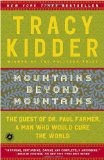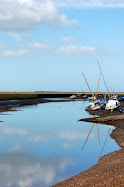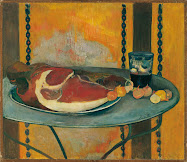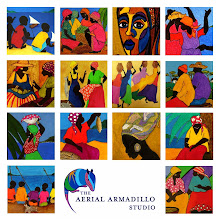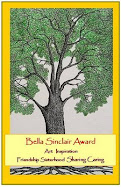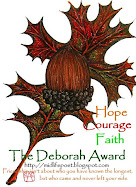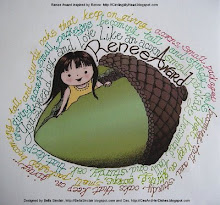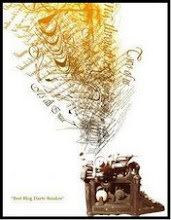
Photo: National Geographic
Gorillas are simply outrageous. Nothing prepares you for meeting one on the green-dripping, moss-covered, butterflied equatorial forest floor. They look up at you from their wrinkled, black leather faces and it's . . . it's . . . well, it's extremely difficult writing about mountain gorillas. Words seem woefully unable to convey the emotional impact of the experience. When one first locks onto your gaze with its beautiful, wise, hazel-brown eyes your brain explodes. It whacks you in some ancient corner of your mind and comes out as tears. When the gorilla looks away you feel instantly lonely.
I'm not sure when it first occurred to me that human beings might be an evolutionary mistake....probably while watching the ten o' clock news. Sure, we've taken over the planet, but judgement about the genetic path we're on really depends on whether you rate success as the ability to loot, burn and pillage or live in harmony with Earth's other life forms. If we are on the wrong track, where and when did we branch off?
There's heated debate in some scientific circles about whether we first stepped onto the savannah and stood up because the forests receded and the grass was tall, or became a semi-aquatic, hairless, dolphin-like creature able to hold our breath because the forests flooded and stranded us on soggy islands. But, either way, we probably began the stooping march to mobile phones and hamburgers in the equatorial forests around the Great Rift Valley.
We left them, conquered space and invented paper clips. But gorillas and chimpanzees stayed put, almost unnoticed by the human world until fairly recently. With logging and mining operations hacking away at their ancient forest homes these distant cousins of ours are now under terrible threat.
I wanted to visit them in the wild before we turned their habitat into a coffee plantation - to somehow say sorry and to see if, maybe, it was they (and not we) who had taken the more sagacious road in the evolutionary process.
 After hours of chassis-punishing lurching and banging southwards towards the northern border of Rwanda the scenery suddenly rose up ahead of us, impossibly green, and we turned down a side road (I use the term loosely) marked by an alluring sign - Bwindi Impenetrable Forest.
After hours of chassis-punishing lurching and banging southwards towards the northern border of Rwanda the scenery suddenly rose up ahead of us, impossibly green, and we turned down a side road (I use the term loosely) marked by an alluring sign - Bwindi Impenetrable Forest.
At the tented camp we were greeted with a tray of iced lemon drinks and another of cool, rolled face cloths with which to smear off the dust. Birdsong rose from the forest and the smell of cooking drifted across from the kitchen. From the camp we could see the canopy of the brooding forest, threaded through with wraiths of mist. A tropical storm rumbled ominously in the mountains beyond and the damp, warm air felt like the breath of a living creature. It must have taken an awful cataclysm to force our early ancestors out of such a paradise. From somewhere a phrase was downloaded into my primeval memory - here be gorillas.
Their habitat, overlapping Uganda, Rwanda and the Congo Republic, is politically volatile and until recently it was a battle zone, with thousands of refugees and soldiers trampling through the forests, exposing gorillas to gunfire and human diseases - 97.7 % of gorilla DNA is 'human' so they're susceptible to most of our ills. 'Bush meat' is often the only source of protein for people in the region - and for loggers - and it’s estimated that some 40,000 tons of it are consumed each year in the Congo alone. Primates are part of this plunder, and around 600 gorillas and 3,000 chimps a year end up in cooking pots. Given their genetic proximity to humans this virtually amounts to cannibalism. It's like eating your ancestors.
Situated in now-reasonably-peaceful Uganda, however, Bwindi Impenetrable Forest is a safe haven. There, in relative security, the great, lazy primates wander, rest and sunbathe between bouts of eating and sleeping. Apart from the occasional luxury of an ant hors d'oevre, gorillas are gentle vegetarians, nibbling the leaves and stripping the bark from around 58 plant species, then belching luxuriously as they rest their bloated stomachs in supine majesty.
After formalities with permits and the selection of trackers we met with our guide, Magezi, at the entrance to the park. He outlined the rules: no more than six people on the trek....nobody with any illness permitted near gorillas; approach no closer than five metres, and maximum contact time one hour.
As we entered the forest a red-tailed monkey dropped from a Banyan branch in the canopy, its tail streaming out behind like the cord of a bungi jumper. A chimp - dissecting nuts along another branch amid a flap of great blue turacos - took no notice.

A squelch of earth in a rare shaft of sunlight had attracted a crazy whirlwind of butterflies. Gaudy swallowtails, blue mother of pearls and chocolate browns dominated a melee of smaller white, orange, red and speckled flutterers, all competing for places to slurp the ooze with their outrageously long tongues.
The previous day the Mubare group had been spotted in the next valley and we made for that point, following the machete-swinging trackers through impossible-looking tangles of branches, leaves, ferns and wicked stinging nettles. At times we were moving on packed foliage up to a metre above the forest floor.
 When we arrived at the place the gorillas had rested the previous day, I picked a half-eaten leaf and a chewed stick and tucked them into my backpack. Somehow it seemed significant to keep the leftovers of a gorilla lunch. From there the tracking began in earnest and I soon discovered the benefits of walking on your knuckles. Where gorillas had passed with ease we humans slashed and cursed, got caught by vines and were smacked by overhanging boughs.
When we arrived at the place the gorillas had rested the previous day, I picked a half-eaten leaf and a chewed stick and tucked them into my backpack. Somehow it seemed significant to keep the leftovers of a gorilla lunch. From there the tracking began in earnest and I soon discovered the benefits of walking on your knuckles. Where gorillas had passed with ease we humans slashed and cursed, got caught by vines and were smacked by overhanging boughs.
"Shh! The gorillas are here!" whispered Magezi suddenly and everyone froze. I detected the movement of a dark shape ahead and stared fixedly at it. Then, glancing to my left for no particular reason, I found myself in the gentle gaze of the most thoughtful brown eyes I'd ever seen. The female gorilla was sitting like a silent, furry Buddha only a few paces from me, exuding a peacefulness which offset any possible fear I might have had in the presence of such a powerful, near-mythical creature. Then she tipped onto her knuckles and loped to the base of a giant mahogany tree, lay on her side and began fishing for termites, licking them off her fingers and grimacing comically when they bit her.
We moved a few paces and were halted by the presence of an enormous silverback. I remembered Magezi's instructions if he charged.....crouch down and don't make eye contact. But I couldn't drag my eyes away from him.Beneath his huge crown were two penetrating eyes, a shiny black leather face, enormous air-scoop nostrils and a mouth you'd have to describe as quizzical. His muscular arms reminded me of Popeye and his torso would be the envy of a Sumo wrestler, but my startled gaze was drawn to his fingers....they were the size of huge, tropical bananas. He rumbled deep in his throat, causing me to fear the worst, but then ambled off, with us skulking in his magisterial wake.
"Come quickly," hissed Magezi beckoning us with a wave. We peered round a bush and there the great creature was, comfortably scratching his broad bottom with an expression of complete and utter contentment. Beyond him were three females, another young male, some adolescents and two babies.

A youngster - looking for all the world like a cuddly toy - bounded towards the scratching patriarch, sat down beside him and pounded his little chest, then looked up at Papa for approval. Having secured that, he leapt for a branch, hung by his feet with his arms dangling and offered us an upside-down grin. The silverback glanced at his gawking audience with not a trace of interest - we could have been forest butterflies for all he cared - then rolled onto his giant knuckles and was gone. The hour-long audience with these magnificent ancestors of ours was over.
Our paths had parted and where those paths will ultimately lead remains an unanswered question. But by the time we'd bone-jarred our way back to the bustling maelstrom of downtown Kampala, however, I had no doubt about which branch of the family tree I'd rather hang out with.


 It is in that spirit that I would like to pass on the International Reach Out Award. You see, it was a very special friend’s birthday yesterday.....
It is in that spirit that I would like to pass on the International Reach Out Award. You see, it was a very special friend’s birthday yesterday..... 




























